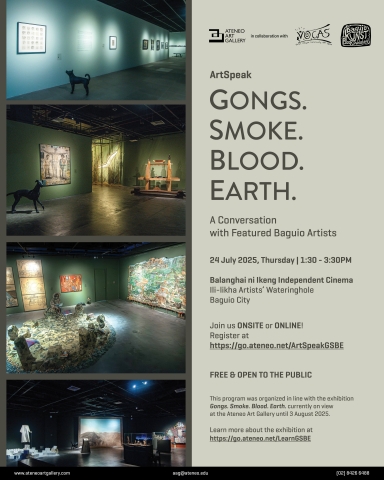Recounting my experience in ‘On Wines and Reflections’
24 Feb 2025 | Bro Jeff Ryan Miraflor SJ
When I agreed to be the host of “On Wines and Reflections,” a first-of-its-kind event by the Office of University Development and Alumni Affairs this past 15th of February at and in partnership with the Ateneo Graduate School of Business–Center for Continuing Education and Le Cordon Bleu Ateneo de Manila Institute, I had no idea what a delight wine tasting paired with Ignatian Spirituality would be. It turned out to be a Heavenly match, with many moments of wine tasting and food pairing, which felt like a familiar space for many people in the room who were familiar with Ignatian Spirituality and the Ignatian Examen in particular.
With an excellent introductory talk given by Fr RB Hizon SJ about how the founding of many wineries all over the world came about from the necessity of wine for the celebration of the Mass as well as his own experience in growing in appreciation of wine, Sommelier Odie Pineda led us through the many ways that the taste of wine is affected by the land where the grapes are grown, the weather, and even the other plants around the vines. We were challenged early on by Sommelier Odie to ask ourselves whether we “drink for pleasure or drink to appreciate.” The hesitance from everyone at first quietly revealed a bit of shame in some people’s relationship with alcohol, but after learning about how all these factors contribute to our enjoyment of the wines we were invited to see wine with a greater sense of gratitude and appreciation—as a “fruit of the earth and work of human hands." I couldn’t help but think in the moment of St Ignatius’ strong insistence on gratitude, so important to him that he even said that ingratitude is “the most abominable of sins” and “is the cause, beginning, and origin of all sins and misfortunes.”
We learned that the art of appreciating wine not only requires knowledge about it but also the use of all of our senses—and even our memories—to notice the subtleties in flavor and aroma, recalling memories of various aromas we grew up with in our home cooking and native fruits. I was immediately reminded of Ignatius’ “application of the senses,” which is a way of entering deeper into contemplations on the life of Our Lord—especially the moments of his life that the Gospel writers don’t go into too much detail—using our human senses of sight, hearing, smelling, tasting, and feeling.
Perhaps the most interesting part of the wine tasting was the food pairing portion, where we sampled honey, calamansi, cheese, and dark chocolate before taking sips of each wine. There we were amazed at how each flavor can be used to both bring out the best features in a wine such as its sweetness, butteriness, or smoothness and how some they can hide the bitterness or acidity in a wine. In the closing Ignatian Examen, we were invited to consider, going forward, how we can be like those flavors that bring out the best in others and vice versa, how we can surround ourselves with people that bring out the best in us.




